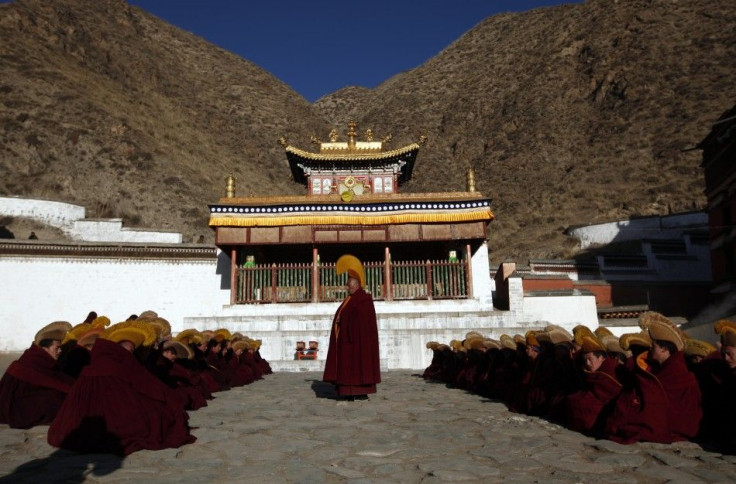Being A Journalist In Tibet Is Harder Than In North Korea

North Korea has a reputation as one of the most difficult places for outsiders to visit -- and for journalists, it's one of the hardest places from which to report. But there's a place that allows even fewer foreign reporters than North Korea does: the China-controlled Tibetan Autonomous Region.
At a lecture at Yale University, Carole McGranahan, a University of Colorado professor and Tibet scholar, pointed to the disparity in the number of foreign reporters in Tibet compared to the number in North Korea. “There have been a handful, a very small handful, of journalists who’ve managed to get in and do some reporting,” McGranahan said. “But in general, the line I like to use is that there are more foreign journalists right now in North Korea than there are in Tibet.”
According to a report in the Washington Post, Tibet has been generally closed to foreigners, particularly foreign journalists, since deadly protests rocked the region in 2008. At least 10 people were killed in riots, either by self-immolation or from gunshots fired by riot police.
Tibet has been a point of tension for Chinese officials since the 1950s, when China staked its claim to the once-sovereign nation after the China’s People’s Liberation Army defeated the Tibetans. The autonomous region's government traditionally has an ethnically Tibetan person holding the position of chairman, while the position of party secretary for the province is often a Beijing-appointed Han Chinese. Countless Tibetans and their supporters outside the region have protested Chinese rule, demanding religious freedom and cultural sensitivity toward traditional Tibetan customs, among other things. Protests in the region include numerous acts of self-immolation, which are frequently recorded.
While the North Korea analogy isn't the most accurate comparison to Tibet, it's not that far off. Though recent brouhahas over journalist visas for Bloomberg and New York Times employees based in mainland China may suggest otherwise, the foreign journalist presence in China -- Tibet excluded -- has expanded tremendously over the past few decades. After the death of Mao Zedong in the late 1970s, being on assignment in China changed: The country went from a North Korea-like restrictive state to become one of the world's most sought-after destinations. North Korea, on the other hand, continues to be extremely difficult for foreign reporters to enter, and it bars foreign journalists from travel even as tourists, although small changes have happened. For example, the Associated Press has established a properly accredited -- though small -- bureau in Pyongyang, while still nothing of the sort exists in Tibet.
© Copyright IBTimes 2024. All rights reserved.






















